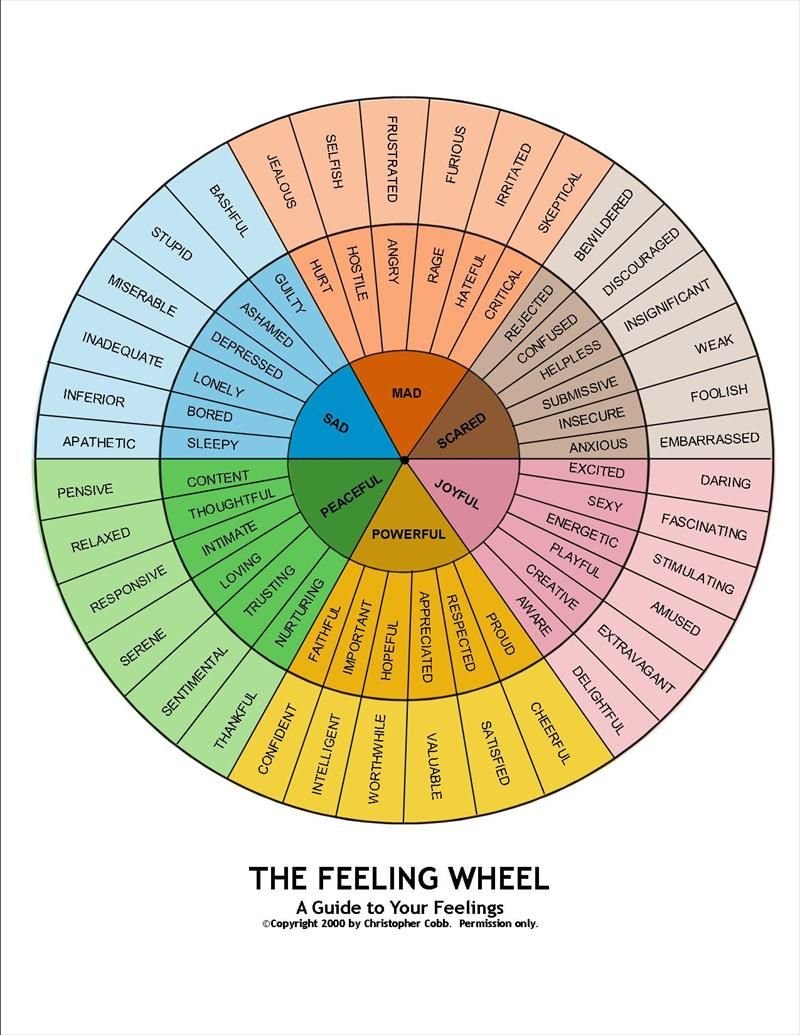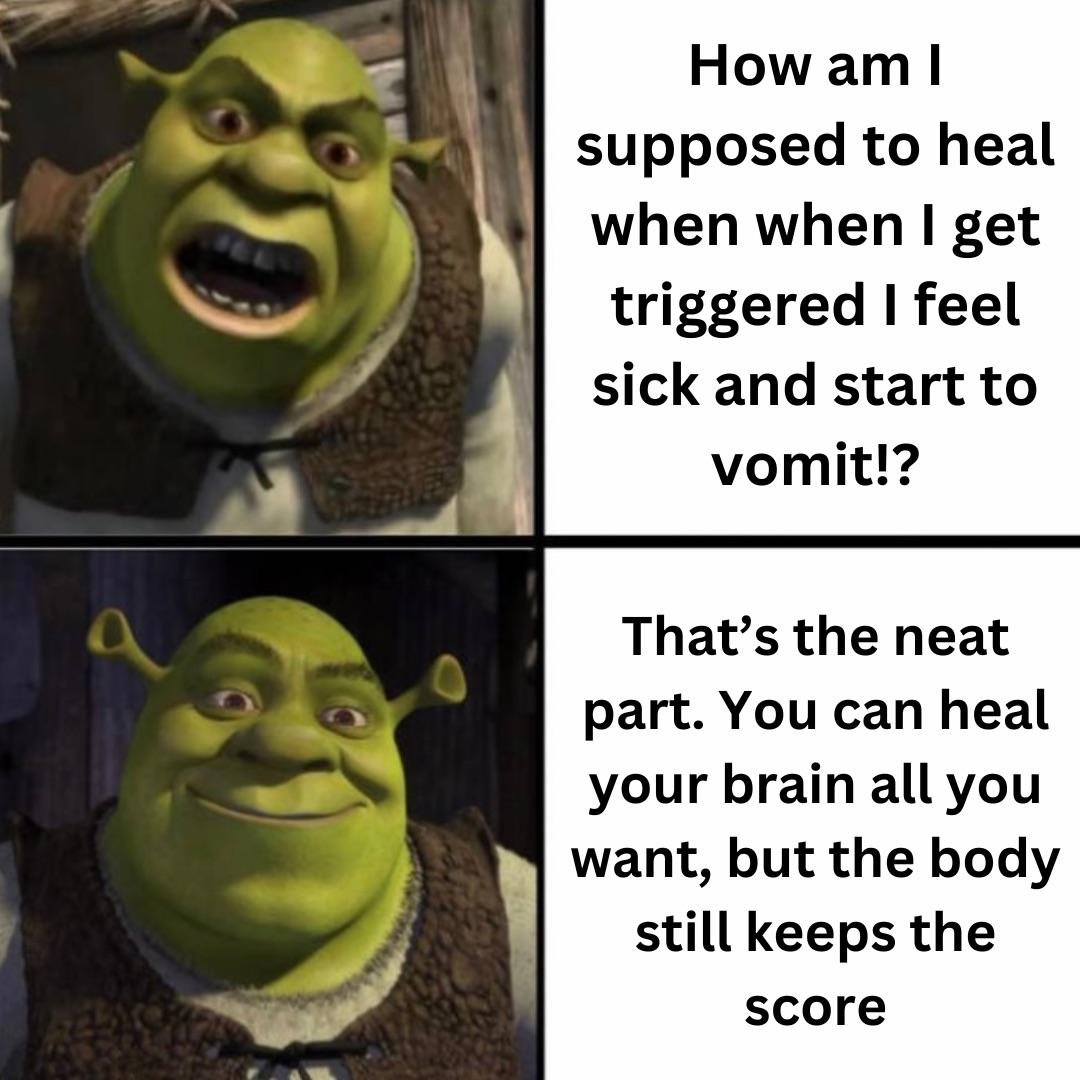ONLINE THERAPY IN WASHINGTON STATE & California
Somatic Therapy
The Body Keeps The Score
Does this sound familiar?
You’ve tried talk therapy before and want something different
You found a limitation to talking and venting in therapy where your therapist nodded in silence.
You want to be more in tune with your emotions and sensations. You want practical somatic skills and guidance so you can learn to trust in yourself more.
You want to increase your self esteem, self confidence, self worth, and self acceptance.
Somatic Therapy
Somatic therapy is about understanding the connection between our bodies and minds.
Our feelings and emotions can show up in our bodies. So, if we're feeling sad, scared, or stressed, our bodies might react too.
I’ll help you notice and understand physical reactions to improve our overall well-being through different techniques to connect with your body including deep breathing, gentle movements, or mindfulness exercises.
What is Somaticization?
Somaticization is when our emotions and mental struggles show up as physical symptoms. Our bodies are trying to tell us something important.
Let's say you have a big test coming up, and you're really nervous about it. Instead of just feeling butterflies in your stomach, you might also feel your heart racing or your hands getting sweaty. These physical reactions are examples of somaticization.
In therapy, somaticization is a way for therapists to understand what's going on inside our minds by paying attention to what's happening in our bodies. They know that our physical sensations are closely connected to our emotions.
By exploring these bodily sensations, therapists can help us figure out what's bothering us and find ways to cope with those feelings.
Click here to learn more.
Common Symptoms Of Somatization
When medical issues are ruled out, sometimes mental health issues can show up within the body.
Headaches & Migraines
Heart Racing
Sweaty Palms & Feet
Heaviness & Burdened
Dizziness
Shakiness
Temperature Changes
Shoulder Tension
Stomachaches
Sweating
Cold Feet & Hands
Fatigue
Back Pain
Gut Issues
Somatic Therapy Can Help With
Body Armoring & Tension
You’re chronically tense and tired in your body.
You hold in tension and your body has learned to ‘armor’ itself as a way to survive and protect yourself.
Somatic therapy can help you gradually relax your body and learn effective ways to protect yourself without always tensing and anticipating danger.
Grief
Internalized grief can lead to feeling stuck, hopeless, and fatigue.
Somatic therapy can help you mourn and process your feelings of grief instead of holding onto it.
We are meant to grieve in relationships, not alone.
Anger
Internalizing anger can often lead to self blaming, self shaming, self demand, self criticism, and self judgment.
Externalizing anger can often lead to blaming, shaming, judgment, and criticism.
Guilt and shame are common secondary emotions.
Somatic therapy can help you feel your anger rather than act out your anger.
Disassociation
You’ve learned to survive by disconnecting from the present moment.
Somatic therapy can help you slowly reconnect to your body and feel more safe inside of yourself.
Rumination & Overthinking
Overthinking and rumination often leads to issues like headaches, migraines, exhaustion, fatigue, and irritability.
Somatic therapy can help you drop from head to hear and from mind to body.
Slowly, you can learn to feel your feelings and sensations rather than dealing with your thoughts.
Anxiety
The cycle of anxiety causes you to avoid situations or people leading to short-term relief.
Anxiety is also psycho-biological meaning it is not only a brain/cognitive based issue, but bodily/somatic issue.
Somatic therapy can help you learn practical self management skills for panic, stress, and anxiety.



Somatic Therapy Can Help You
✔️ Heal From Trauma: Traumatic experiences can leave a lasting impact on the body and mind. Process and release trauma-related sensations, enabling healing at a deep, physiological level.
✔️ Increase Your Sense of Self (Self confidence, Self esteem, Self worth, Self love, Self acceptance)
✔️ Learn Ways To Identify & Assert Your Personal Boundaries (saying no, decreasing guilt, increasing confidence, greater ability to have difficult conversations without collapsing and averting conflict)
✔️ Body Awareness: Somatic therapy encourages individuals to become more aware of their bodily sensations, helping them reconnect with their physical selves. By tuning into these sensations, individuals can gain insight into their emotions, stress levels, and overall well-being.
✔️ Stress Reduction: Somatic therapy techniques, such as breath work, gentle movements, and mindfulness practices, can help reduce stress and promote relaxation.
✔️ Manage Overwhelming Situations: You can learn to self regulate/soothe yourself when overwhelmed with thoughts and feelings. Instead of acting out, you can process your experiences in a more effective manner.
Somatic Healing Is Possible
There is hope.
I’ve worked with many survivors of childhood trauma who now have more peace, joy, freedom in their lives.
I work with survivors of trauma who are now parents who want to parent healthier children and break the cycle of trauma.
I work with therapists and social workers who are wounded healers.
I work with professionals who feel exhausted, overwhelmed, burnt out, and want to take better care of themselves.
I work with individuals who are dating or in relationships and want to create and sustain healthier and more satisfying relationships.
You can feel more joy and peace.
You deserve to have a life where you feel at home not just in your head, but in your body and emotions. You deserve authentic connection and loving relationships with people you trust and care for.
Reach out today to schedule a consultation.
Still Have Questions?
-
Modalities
Resources
Research
Read My Blog Posts on Somatic Therapy
-
IFIO for couples/dyad therapy trained
Trauma and Dissociation/CPTSD Informed Internal Family Systems (IFS) - A 5-Day IFS Retreat With Joanne Twombly
3-Year Program (Completed Beginning Levels 1, 2 & 3, Intermediate Levels 1, 2, & 3)
Anticipated completion Fall 2026
Mindfulness
Completed: Mindfulness Based Cognitive Therapy, Mindfulness for Therapists, Silent Weeklong Meditation Retreats, Mindful Self Compassion
Level 2 trained
-
Some clients benefit from brief therapy (1-4 sessions) or short-term therapy (3-6 months) for a single issue.
Other clients benefit from long-term therapy (6-12 months+) for more complex issues.
We’ll end therapy when your goals have been met, your symptoms have decreased, you want space and time to integrate your learning, and/or at anytime you feel therapy isn’t helpful.
Some folks also like to pause and take a break, coming back when necessary.
-
You might cry. Many people do. And it's completely okay.
Crying is a normal, helpful, and natural way for our bodies to release pent-up emotions. Crying is a way to let go of the pain, sadness, or frustration you may be carrying inside.
By crying, you're actually taking a positive step towards healing.
Or you might not cry. And that’s okay too.
-
It’s common to feel nervous and stressed about going to therapy, especially if you’ve never gone before.
Human beings are hardwired to avoid pain, discomfort, and the unknown.
Common reasons clients feel unsure about therapy:
Feelings of embarrassment
Discomfort with vulnerability
Stigma around mental health due to cultural norms
Expenses/fees
Fear of being misunderstood
Fear that treatment will not be helpful
Commitment to treatment long term
Past negative experiences with therapists
And more
I’ll ask you questions about your worries so we can alleviate and address your concerns.
There is no “perfect” time to start therapy. We begin where you are at and we move slowly. The hardest part is usually making the first step and reaching out.
Trust times take time to build. We’ll only continue meeting if we both find it helpful and a good fit.
If I’m not a good fit for your needs, there are a variety of therapies and types of therapies available who can help you.
As a therapist who goes to therapy, I still feel nervous at times going to therapy!
-
While it's possible to work on your own personal healing, therapy offers different benefits that may be difficult to achieve on your own.
Talking to a friend, reading self-help books, journaling, and scrolling through TikTok and Instagram are all tools. Therapy is another tool.
Therapists provide:
Accountability
SupportAn objective perspective
Structure
Confidentiality
Expertise, skills, and training
However, some people never go to therapy and live full and complete lives.
Therapy is only one way, but not the only way, toward healing, growth, and transformation.
You get to decide if therapy will be an effective and useful tool on your healing journey.
-
You can review my referrals page for therapists who accept insurance and/or offer a reduced fee here.
Start Somatic Therapy Today
Starting therapy can be overwhelming.
I’m here to make it as easy as possible to get help.
I offer in person therapy in Seattle’s Ballard neighborhood on Mondays & Tuesdays.
I also offer online therapy for residents of California living in Los Angeles as well as the San Francisco Bay Area.





